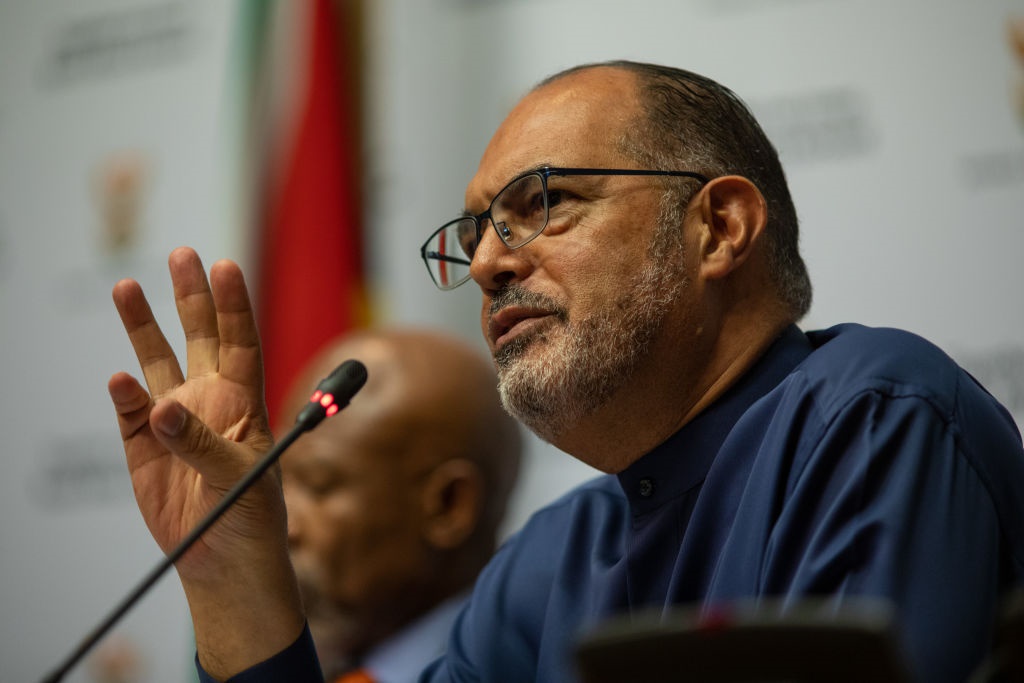News
Kieswetter: ‘If this govt doesn’t deliver, they shouldn’t be in power’

Edward Kieswetter, Commissioner of the South African Revenue Service.
- SARS Commissioner Edward Kieswetter has urged South Africans not to withhold taxes as a form of protest, warning that this will worsen service delivery in the long term.
- Instead, he wants disenchanted citizens to turn to activism or vote for alternative leadership if they are unhappy with poor governance or service delivery failures.
- Kieswetter says SARS is working overtime to improve revenue collection.
- For more financial news, go to the News24 Business front page.
South Africans disenchanted by poor governance and service-delivery failures should turn to activism instead of withholding tax payments, according to the head of the South African Revenue Service.
“My message to those who believe that withholding taxes is the best response is that it would simply aggravate the problem,” South African Revenue Service Commissioner Edward Kieswetter said on Tuesday.
“Let’s get off our seats and let’s be activists to work toward building this society, and if this government doesn’t deliver, they shouldn’t be in power.”
The tax commissioner’s comments come as the ruling African National Congress and President Cyril Ramaphosa face criticism over record power cuts. State-owned monopoly Eskom, which has been struggling to meet demand for about 15 years, imposed blackouts for more than 200 days in 2022 and every day so far this year.
Severe power outages are also affecting the supply of water in some of the nation’s biggest cities.
The crisis is forcing the country’s affluent minority to turn to the private sector, with increased demand for back-up power and rainwater harvesting and storage solutions by businesses and homes. The tax agency and National Treasury are engaging on potential relief measures for those that opt for costly alternatives to Eskom, Kieswetter said.
Many of the country’s wealthy and middle-class citizens also use private education and health care that competes with some of the best in the world, while the majority of the population relies on dilapidated public systems.
That’s indicative of the nation’s status as the most unequal of countries for which data is available, according to the Thomas Piketty-backed World Inequality LabSouth African media have speculated that the country is facing a tax revolt because of growing frustration about decaying infrastructure such as roads, calls to widen the welfare net while raising taxes, and the government’s sluggish approach to turning around an economy and state institutions that were hollowed out during an era of state corruption.
Welfare recipients outnumber personal-income taxpayers in South Africa and while it’s not sustainable to have about 30 million grant recipients, it’s the only safety net that keeps people from “absolute destitution,” Kieswetter said.
Studies show South Africa’s income disparity would make it a good candidate for a wealth tax, but authorities believe growing compliance would reduce the need for additional levies and would rather bring duties in line with OECD rates instead of increasing the burden on taxpayers, he said.
Finance Minister Enoch Godongwana is due to present a budget that outlines the government’s spending and revenue framework for the next three years on 22 February.
Taking chances
The tax office noted “increased abuse of the tax compliance system” with economically active residents filing zero-income or inaccurate returns, the National Treasury said in February last year.
The agency is doing everything it can to improve compliance and meet revenue-collection estimates in spite of power outages so as not to compromise the wellbeing of future generations by increasing the state’s borrowings and debt-service costs, Kieswetter said.
The turnaround of the South African Revenue Service is one of Ramaphosa’s biggest institutional reform successes to date. The office, under Kieswetter, has supported the state’s balance sheet by improving compliance and overshooting revenue-collection estimates for two consecutive years.
